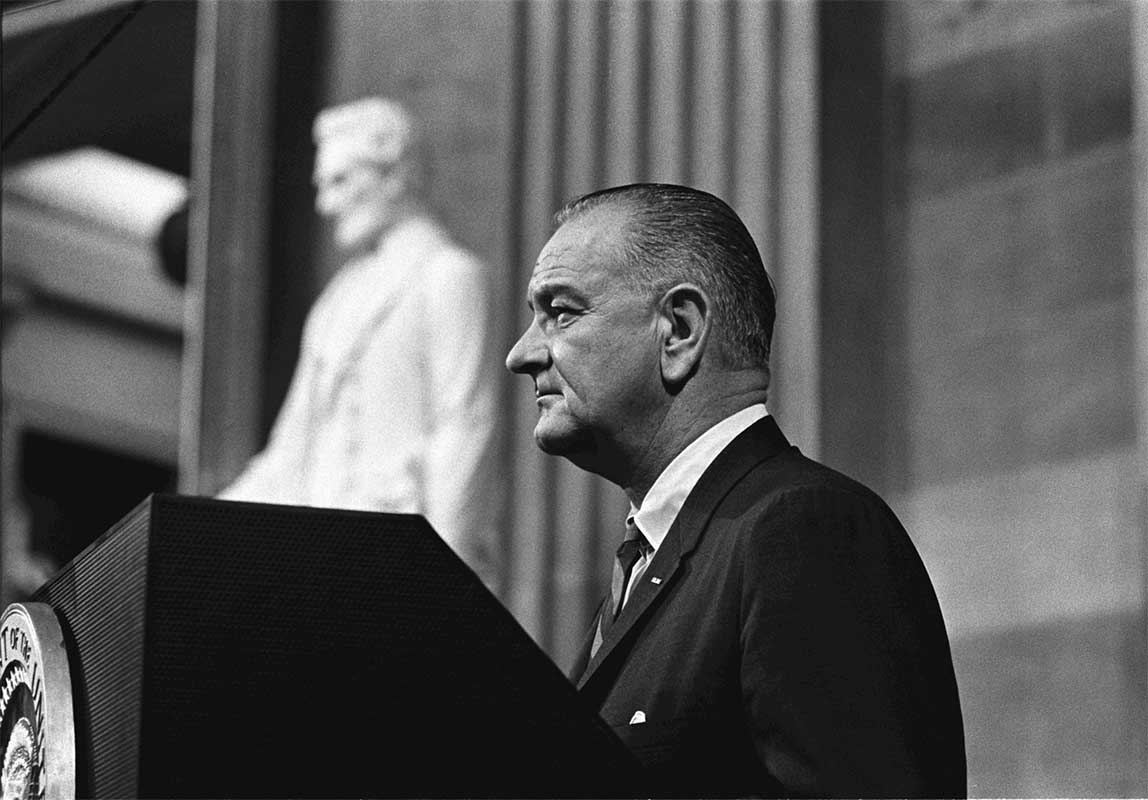
Civil Rights
To Right Wrong. To Do Justice. To Serve Man.
Civil Rights Act of 1964

When tragedy landed LBJ in the presidency, he set civil rights at the top of his agenda. He knew nothing could honor President Kennedy's memory more than its passage. It took a combination of timing, LBJ's political prowess, and the tireless efforts of the civil rights movement to bring the bill to its final fruition. Yet despite the bill's passing, the south still presented an unflinching opposition to the law.
Voting Rights Act of 1965

Soon after LBJ's victory in the 1964 presidential election, Attorney General Nicholas Katzenbach was instructed to privately begin drafting voting rights legislation. It would take a strategic plan to turn back decades of discriminatory rules and practices preventing minorities from registering to vote. Like the Civil Rights Act, it would take a combined effort—LBJ in government and black leadership taking the movement directly to the people.
Civil Rights Act of 1968
The struggle for fair housing had always been a contentious debate in Congress. The bill had failed twice in previous sessions. Amid an all-time high of racial tension and days after Dr. Martin Luther King Jr.'s assassination, the bill finally passed. Discrimination on the basis of race, color, religion, or national origin in the sale and rental of housing would be prohibited. Fair housing would be the law of the land.



